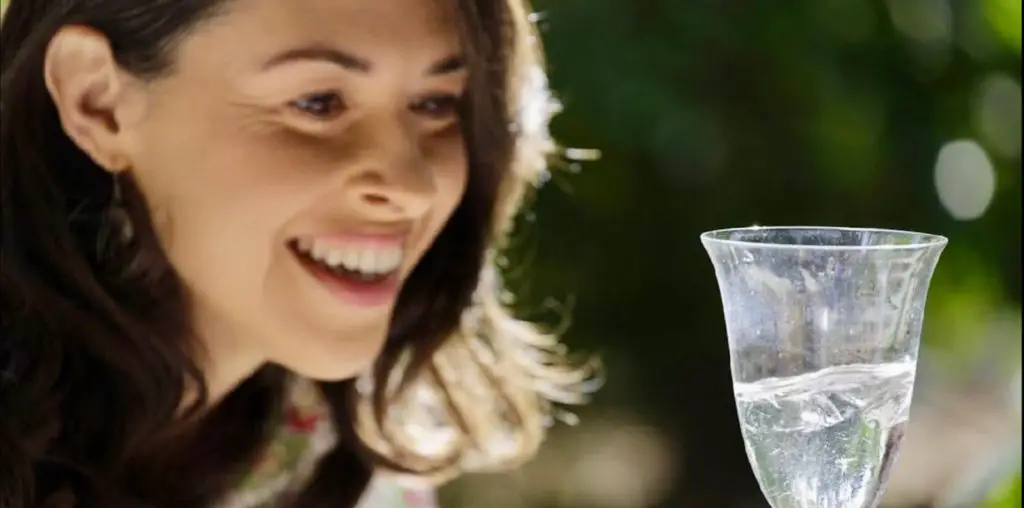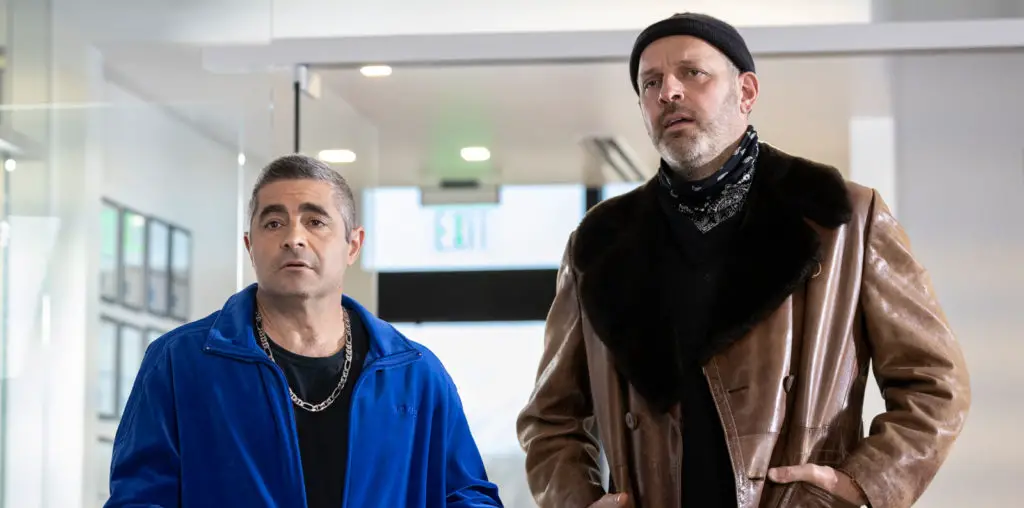
BOOTLEG FILES 135: “The Orson Welles Drunken Out-takes” (circa 1978 bloopers starring the Big O and Paul Masson champagne).
LAST SEEN: Online on several video sites.
AMERICAN HOME VIDEO: None.
REASON FOR DISAPPEARANCE: It just did not happen.
CHANCES OF SEEING A DVD RELEASE: When the time is right.
I am not a huge fan of out-takes and bloopers. Watching supposedly professional actors collapse into giggles or scatological language when trying to recite lines isn’t particularly amusing. As an occasional actor who always gets into mild panic trying to recall my dialogue in a script, I see nothing particularly funny in watching performers goof up and then yuk it up as if incompetence is acceptable.
But recently, I can upon a series of out-takes which are remarkable on a number of levels. The out-takes involve Orson Welles, arguably the most dynamic presence in the history of 20th century cinema. And while people envision Welles as the consummate professional, the out-takes reveal a surprisingly vulnerable and real side of the enigmatic actor/filmmaker.
During the late 1970s, Welles’ career hit a roadblock. His attempts to finance films of his own creation stalled due to a history of unfinished projects and occasional productions (such as “The Immortal Story” and “F for Fake”) that were commercial failures in their U.S. release. Welles also had the handicap of an immense girth that significantly limited his acting roles (which he primarily used to self-finance his own directing efforts).
If the big screen was hostile, the small screen was more than accommodating. Welles became something of a regular on Johnny Carson’s and Merv Griffin’s talk shows, offering a charming raconteur spirit and feats of delightful magic chicanery. For many people who were unfamiliar with Welles’ earlier cinematic masterworks, the presence of the large and jolly charmer on the late night talk shows resonated strongly.
Not surprisingly, many advertisers sought to tap into Welles’ new TV fame. The one who had the most success was Paul Masson, the American wine distributor that rightly felt Welles’ dignified voice and reputation for genius and class would serve as the proper spokesman for the company. Welles signed with the company in the mid-1970s and did not disappoint, as his melodramatic delivery of the company’s slogan – “Paul Masson will sell no wine before it’s time” – became an immediate addition to American pop culture.
But this is not to say that Welles was always the consummate professional when it came to shooting commercials for Paul Masson. Three out-takes, totaling less than two minutes in length, have circulated for years that show Welles may have taken his responsibilities as the Paul Masson spokesman somewhat too enthusiastically. Or to be honest – they offer a rare chance to see a very real and very drunk Orson Welles flub his lines on camera.
I am not certain when the out-takes in question were shot (from the looks of the hairstyles and clothing on the extras, it would seem it was around 1978). Nor do I know anything about the history surrounding their production (if anyone has information, please e-mail me courtesy of Film Threat). What I can say, however, is they are thoroughly astonishing to behold.
The first take in the set has an off-camera director (with a British accent) announcing “camera” and “action” on a scene that looks to be at a swanky cocktail party in some rich person’s home. Several well-dressed extras are chatting in animated style in the background of the scene while the main focus is on a table right before the camera. At the left portion of the screen is a young woman and a young man with a champagne bottle. At the right is Orson Welles, sitting with his eyes at half-mast and an unmistakable sense of inebriation about him. To hide his girth, Welles is filmed only from the chest up, with the table blocking the rest of his body.
Once “action” is declared, Welles literally sits in stony silence, looking at the camera without making any contact with the world around him. The woman and the man at his side seem visibly confused by Welles and the British director yells off-screen “Action, Orson, please.” Welles waits a few seconds before responding, and then asks in a slurred voice: “Does this do anything?” There is some more visible confusion from all parties on camera before the director yells “Cut!”
The next take finds Welles remembering his presence and responding to the cue cards he is supposed to read. After action is called, Welles launches into his opening remarks, which were scripted as “Ah, the French.” But in Welles’ drunken state, that simple line comes across as “Aaaaaaaaaaaaaah….the…..French.” Welles’ gives his “Aaaaaaaaaaaaaah” an open mouthed yawn that would please dentists.
Welles then goes into his dialogue, but due to his alcohol-inflamed condition his majestic speaking voice is fractured along the way of sing-song English that is typical of many Central Asian immigrants. As Welles babbles in odd, asymmetrical patterns that emphasis the wrong vowels amidst extended pauses, his unidentified young colleagues at the table are visibly confused. The woman does nothing but look decorative while the man feigns opening a visibly uncorked champagne bottle. Welles’ taps his pudgy finger against the bottle to identify it and the Paul Masson brand while the young man tries to pour it into a champagne glass. Unfortunately, the prop man forgot to fill the bottle and the young man winds up pouring a thin trickle of bubbly for the Big O’s delight. The British director yells “Cut!” with undisguised contempt.
By the start of the third take, Welles is already cognizant of his buzzed state. The camera finds him rubbing his eyes quickly and tightly, as if the erase his drunken state immediately. Again the director yells “Action,” but Welles is even worse this time. His “ “Aaaaaaaaaaaaaah” is extended and bisected into a longer “Waaaa-aaaaaah,” sounding much like a moose letting off pleasure for a particularly rich ejaculation.
And, again, Welles delivers his lines in an elliptical manner that offers no clue of his vocal prowess. And, again, his chubby finger taps impotently against the champagne bottle held by the visibly shaken young man, who pretends to uncork it while pouring out a very think trickle before “Cut!” is yelled anew. From here, the out-takes are over. What happened next is strictly a mystery – did the film crew continue or did Wells break away to get himself sober and hit the commercial refreshed?
Welles split from Paul Masson in 1981 following a dispute over line delivery. He was replaced by John Gielgud, fresh off his “Arthur” triumph, as the celebrity spokesman. Yet no one remembers the Gielgud commercials and everyone recalls Welles’ delightful hamming. Where the bootleg videos of the drunken Welles out-takes came from is a mystery, but they are out there any many online video sites have some or all of them for viewing.
Indeed, Paul Masson may sell no wine before its time, but Orson Welles has no problems selling Paul Masson after party time!
____________________________________________________________
IMPORTANT NOTICE: The unauthorized duplication and distribution of copyright-protected material is not widely appreciated by the entertainment industry, and on occasion law enforcement personnel help boost their arrest quotas by collaring cheery cinephiles engaged in such activities. So if you are going to copy and sell bootleg videos, a word to the wise: don’t get caught. The purchase and ownership of bootleg videos, however, is perfectly legal and we think that’s just peachy! This column was brought to you by Phil Hall, a contributing editor at Film Threat and the man who knows where to get the good stuff…on video, that is.
Discuss The Bootleg Files in Back Talk>>>


Anyone else remember this? I’ve been looking for something I heard on a DJ radio program years ago. Welles recording audio, and I seem to recall him telling the tech:
“… Son, don’t try to direct me. Don’t ever try to direct me. I was directing before you were born. You are an audio technician, please just move the dials.”
I think the audio guy had said something like: “Can we try it again- a little more ‘hail fellow well met’ this time?”